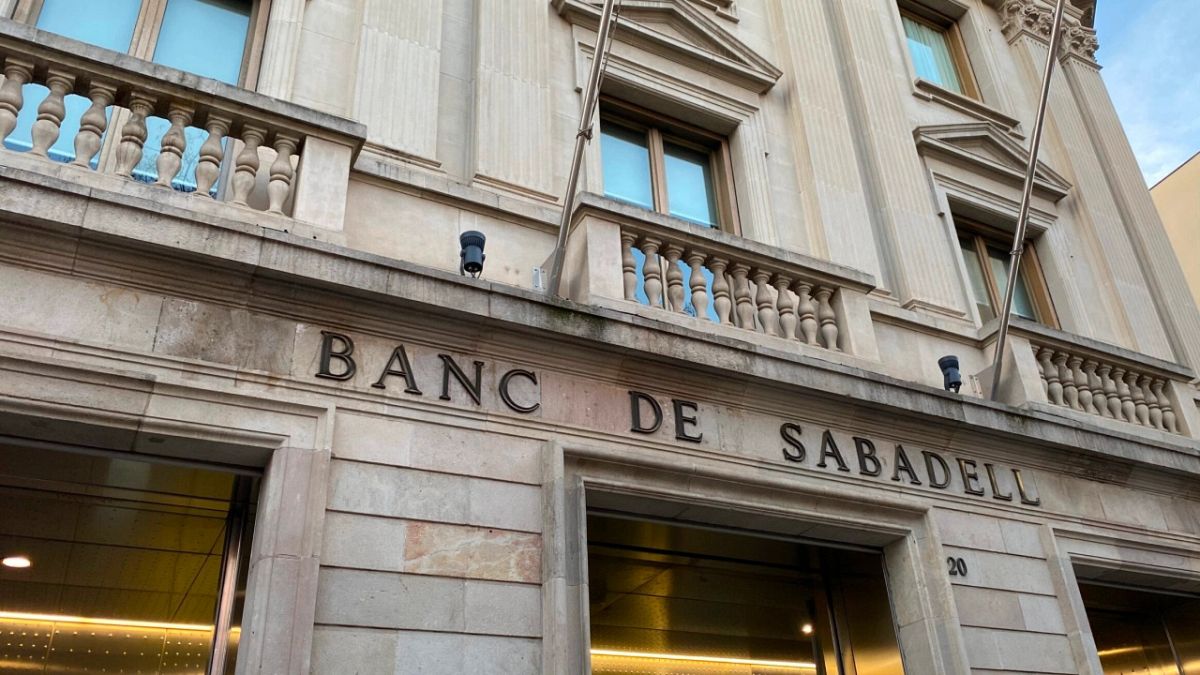Spain underwent a political regression while nobody was watching

By Antonio Maestre, Journalist and writer
A reactionary wave is coming our way that could consolidate itself in the 23 July general elections after Spain suffered a process of conservative cultural and political backsliding, Antonio Maestre writes.
In order to understand the reactionary turn in Spain, we should look at the case of Doñana National Park.
The largest wildlife reserve in southern Europe is in danger due to extreme drought and the proliferation of illegal irrigation exploiting the aquifers that provide water to the wetlands.
The most recent threat to it appeared when the Partido Popular (PP), the conservative party in Spain, introduced a bill in the Andalusian regional government that ruled in favour of the horticultural entrepreneurs who illegally exploit the irrigations that are drying up Doñana.
But even as the bill was criticised by the Spanish government and European Union, the PP achieved a stunning result in the regional and municipal elections in the southern region of Huelva, where the national park is located.
In short, the Andalusian electorate supported a political action that calls into question the survival of the region’s greatest natural treasure.
Whenever moderates become more conservative, the far-right gains more ground
Spain’s reactionary right’s strategy of denying the importance of the climate crisis and framing climate policies as being counter to the needs of the poor has been one of the strengths of their movement.
It has led to the far-right VOX party permeating the Spanish conservatives, echoing a trend across Europe, where the harsher approaches that post-fascists introduce into the public debate are taken up by more moderate conservatives.
This reactionary cultural battle in Spain has been built using three fundamental elements: Spanish nationalism in confrontation with the Catalonia secessionist process in 2017, the strategy against policies that address the climate crisis, and a fiercely vocal anti-feminist stance.
Feminism has been the main essence of the reactionary conservative radical right’s resurgence, serving to establish a narrative that the government is distanced from the concerns, interests and needs of what some believe to be the majority of society.
According to the extreme right’s sociological blueprint, this majority is, in fact, white, heterosexual, middle-class or working-class men.
Pedro Sánchez, far right’s scarecrow
There has also been a constant and aggressive discourse of demonisation of Prime Minister Pedro Sánchez, especially in terms of the restrictive health policies due to the COVID-19 pandemic.
Sánchez’s image in Europe contrasts with the image that the conservative counter-reform has managed to create in his own country through a front of media outlets and political and cultural combat aimed at demonising and dehumanising the head of government.
That was further entrenched through a discourse of hatred against Sánchez on the right and the extreme right following the extreme polarisation of the country’s society.
The success of this virulent campaign can be seen in the results of the regional and municipal elections of 28 May, in which PSOE, the social-democratic party, suffered a severe setback that forced Sánchez to call a general election for 23 July.
Meanwhile, the left is left in tatters
Spain has suffered a process of conservative cultural and political backsliding as a reaction to the implementation of ambitious rights policies, especially in the fields of equality, LGTBQ+ rights and feminism.
Just as in the US in the 1990s, when there was a reaction against the third feminist wave, in Spain, the advance made in terms of rights has been threatened by a powerful backlash that has managed to turn voters towards conservative and extreme right-wing electoral positions.
The reactionary counter-reformist process has had a special impact due to the presence in the coalition government of the post-communist left configured through the Unidas Podemos, or United We Can party.
Its presence in the executive has been successful in terms of progressive public policies, but an erratic communication strategy, confrontations with PSOE — the majority partner in the government — and persecution of dissent within its own ideological space have opened the door for the reactionary counter-reform to become further effective.
The dissolution of the Spanish radical left, wrapped up in internal party struggles, has gone hand in hand with the hollowing out of social, cultural and associative movements.
Just as the “neighbourhood movement” of the 1980s was taken over by PSOE, Podemos dismantled and institutionalised all movements after the “15M” series of protests in 2011.
For more than a decade, the post-communist left has been abandoned in the wilderness because all it has left is Second Deputy PM Yolanda Díaz, a figure forged in the government who has been bulldozed by reality and who will not have time to shape a hopeful and exciting movement for a progressive alternative in barely a month.
Ultra-radicalism uses crises to go up in popularity
All of these circumstances in Spain add up to the fact that there is a reactionary wave coming our way that could consolidate itself in the general elections of 23 July and be further strengthened by the presence of Italy’s post-fascist government of Giorgia Meloni.
If that happens, the south of Europe will be dominated by a reactionary zeitgeist that will help to promote policies of exclusion and regression of human rights in the EU, all at a time when the old continent is experiencing the consequences of a policy of war stemming from Russia’s invasion of Ukraine.
In turbulent times, ultra-radicalism always gains further ground.
Antonio Maestre is a journalist and writer. He is a regular contributor to eldiario.es, La Sexta and La Marea, as well as Le Monde Diplomatique and Jacobin. He is the author of books Los Rotos (“The Broken Ones”), Infames (“Infamous”), and Franquismo S.A. (“Francoism PLC”).
At Euronews, we believe all views matter. Contact us at view@euronews.com to send pitches or submissions and be part of the conversation.
Source: Euro News















